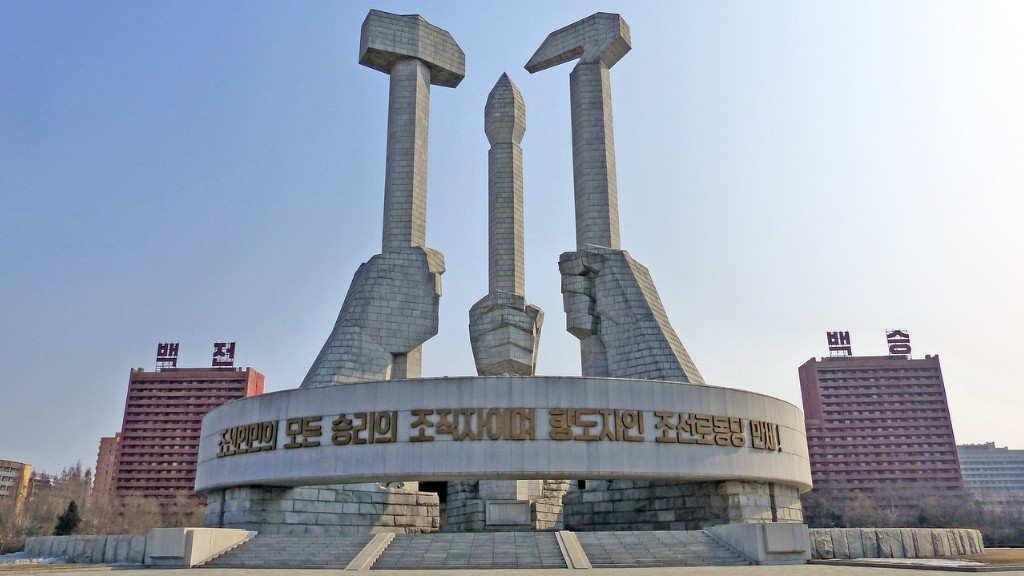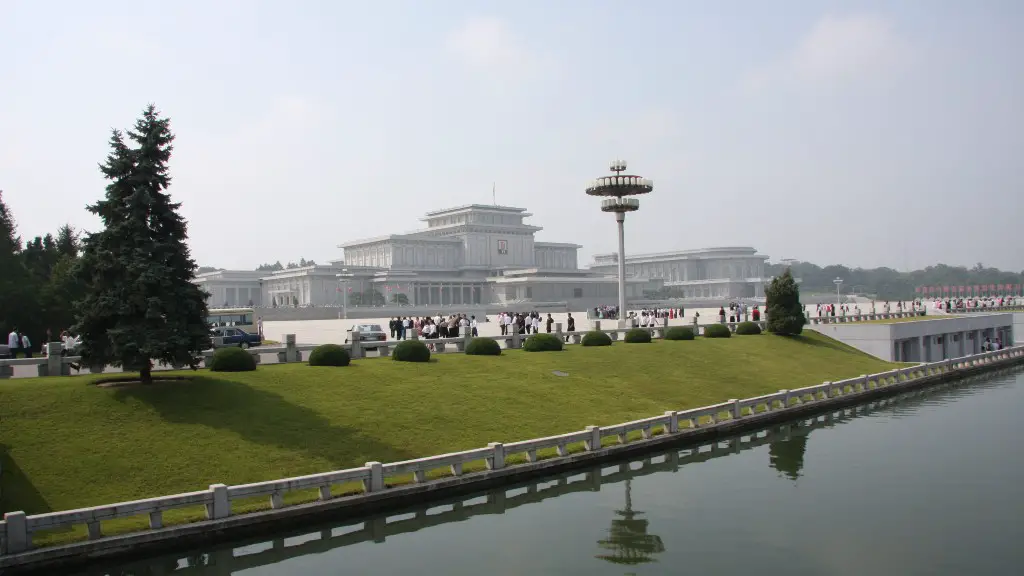Background Information
North Korea has a well-documented history of conflict with the United States and other Western nations. This conflict dates back to the 1950s, when North Korea invaded South Korea, and has continued to the present day. In recent years, North Korea has continued to be a major source of international tension, with numerous threats made to its adversaries.
In January 2016, North Korea tested a nuclear weapon, prompting international outrage and condemnation. This test was seen as a direct violation of United Nations Security Council resolutions and a clear breach of the Nuclear Non-Proliferation Treaty. In response, the US and its allies imposed economic sanctions against North Korea, damaging its already weak economy.
Since then, North Korea has made a number of threats against the US and its allies. The United Nations has repeatedly admonished the North Korean regime for these actions and called for an end to the weapons testing program and the development of nuclear weapons.
Relevant Data
North Korea’s threats to its adversaries are well-documented and persist over time. In 2017, North Korean leader Kim Jong Un warned of “catastrophic consequences” if the US and its allies do not stop their “aggressive” behavior, and he has explicitly threatened to launch a “pre-emptive nuclear strike” against the US or its allies in the region.
In November 2017, the US placed additional sanctions on North Korea, prompting a direct response from the North Korean government. In a statement released to the media, a North Korean official declared that the “US may expect [a] severe ‘Christmas gift’” in response to the sanctions.
In April 2018, North Korea announced that it was suspending all nuclear and ballistic missile tests, and in June 2018, North Korean officials held a highly publicized summit with US President Donald Trump. Despite the initial optimism of the summit, talks soon broke down and North Korea again resumed its threat of war. In the months since, North Korea has sporadically renewed its threats of military action against the US and its allies.
Experts Commentary
Experts remain split over how seriously to take North Korea’s threats. Some view the threats as an empty bluff; others believe that North Korea is playing a dangerous game of brinksmanship.
According to Robert Kelly, a professor of Political Science at Pusan National University, “North Korea is probably just trying to get our attention and force negotiations to start.” Kelly believes that Kim Jong Un is looking for a diplomatic breakthrough and is hoping to use the threat of nuclear war to gain leverage in negotiations.
Others, such as Scott Snyder, a senior fellow at the Council on Foreign Relations, believe that North Korea should be taken at its word. “The provocative behavior of the past year raises the possibility that Kim Jong Un might not be bluffing and could actually follow through on his threats,” Snyder warns.
Analysis and Insights
North Korea’s threats are a direct result of its highly sensitive geopolitical position. The regime is surrounded by powerful adversaries, and its leaders have few options for gaining international recognition and respect. As a result, North Korea has adopted a policy of brinksmanship, betting that its threats will be taken seriously and will bring diplomatic and political benefits in the long run.
The US, for its part, has responded cautiously to North Korea’s upsurge in threats. President Trump has maintained that the US is willing to negotiate with North Korea, as long as North Korea agrees to denuclearize. However, both Trump and his advisers have refused to publicly acknowledge the threats, maintaining that the US will not be intimidated.
Implications and Consequences
The international community is deeply concerned about the possibility of a conflict between North Korea and the US and its allies in the region. Such a conflict could have serious consequences, not just for the region but for the entire world. A war between the two sides could lead to millions of deaths, economic devastation, and a massive refugee crisis.
The threat of war also has serious economic consequences. The geopolitical tension in the region has caused international investors to pull back on investments, leading to a decline in the value of regional currencies. A war could also disrupt global supply chains, leading to shortages of essential goods and services. The potential costs of a war between North Korea and the US are too great to ignore.
Regional Responses
In response to North Korea’s threats, countries in the region have taken a variety of measures. South Korea, in particular, has sought to de-escalate the situation by engaging in direct talks with North Korea. The two countries have held a series of inter-Korean summits and have agreed on confidence-building measures designed to reduce the risk of conflict.
In addition, China has sought to play a role in defusing the situation. Chinese authorities have criticized North Korea’s nuclear program and have implemented economic sanctions in an effort to pressure Pyongyang to negotiate. Other countries, such as Japan and Russia, have also expressed support for diplomacy and have called on all sides to avoid conflict.
International Cooperation
The international community is increasingly united in its condemnation of North Korea’s nuclear program and its threats. The United Nations Security Council has passed numerous resolutions condemning North Korea and has implemented a variety of economic and diplomatic measures in an effort to pressure Pyongyang to abandon its weapons program.
In addition, numerous countries have indicated a willingness to cooperate in finding a diplomatic solution to the North Korean conflict. The US and China has developed a working relationship and have agreed to cooperate in finding a peaceful resolution. Other countries, such as South Korea, Japan, and Russia have also expressed their willingness to cooperate in finding a diplomatic solution.
Conflicts of Interest
While the international community is unified in its condemnation of North Korea’s threats, the underlying interests of different countries in the region remain a source of tension. South Korea, in particular, is caught between its close relationship with the US and its desire for closer ties with North Korea. This divide has led to competing interests and shifting alliances, making it difficult to develop a unified approach to the North Korean conflict.
Additionally, in recent years there have been growing tensions between China and the US. The US has sought to expand its presence in the region and has been increasingly critical of China’s economic and military policies. This has created further divisions in the region, making it difficult for all sides to work together to resolve the North Korean issue.




